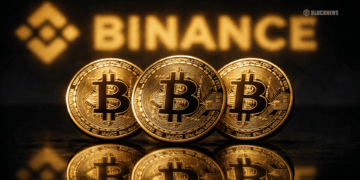- As a starting point, Balaji Srinivasan provides a phrase and a detailed definition in his new book, The Network State.
- The Web3 system and the social smart contract, which demonstrates the citizen’s agreement to be controlled, provide the startup society its full legitimacy as a new sort of state—a network state.
Balaji defines “Network State.”
“A network state is a social network that possesses moral innovation, a sense of national consciousness, the capacity for collective action, an in-person level of civility, and an on-chain census that demonstrates a significant enough population, income, and real-estate footprint to achieve a certain level of diplomatic influence.”
Components of the Balaji Network State Concept
Social Network
People must decide to support the network state for it to exist. A group of people connected by a network that enables them to work together to generate the network state is required to construct a network state. A smart contract rendition of Rosseau’s “social contract” may be used to bind this network formally. It is not yet a network state; it is what people may term a startup society.
Recognized Founder
According to Balaji, the decentralization movement needs leaders, like any other new project, a keen observers of reality. Founders must act as a centralized authority during the initial stages. According to Balaji, “A founder is the ideal leader since they have the authority to start an enterprise from zero. A founder’s authority derives from individuals voluntarily joining what the founder is building, in contrast to many other forms of authority (such as media oligarchy or dictatorship). The leadership methods may become more decentralized as the community and project evolve.”
Capacity for collective action
The network state will require a mechanism for citizen collaboration. On the blockchain, a straightforward formal structure can offer decentralized, transparent, and auditable instruments for collective action and decision-making. When acting and interacting with current governments for mutual advantage, a “network union” can function similarly to a traditional labor union or trade organization.
Integrated cryptocurrency (and blockchain)
Each nation-state has a designated currency that grants it some level of economic control or, unfortunately, unchecked inflation. A network state’s citizens can benefit from recognized and valuable cash with an auditable supply and transparent, citizen-controlled laws. Balaji also refers to a distributed ledger system that goes beyond money and can serve as an immutable record of all the data we might anticipate a state to keep, such as smart contracts, citizenship, property registries, national public statistics, etc. This system is secure, encrypted, globally accessible, and uncensorable.
Consensual government with powers limited by smart contract
Citizens actively choose to participate in a network state; they opt-in. And they are fully aware of what they are receiving. Smart contracts specify the network state’s restricted and constrained authority over citizens and the means to change that authority.
Virtual capital
Balaji believes a network state cannot exist without virtual capital. Individuals undoubtedly need a reputable venue to meet up online, regardless of where they are physically located. Virtual money cannot be targeted similarly to physical one. This capital may be as straightforward as Discord or intricate and feature-rich as a virtual reality environment.
Conclusion
According to Balaji, a group is not truly a “state” until it receives diplomatic recognition from existing nation-states. A new civilization is placed in a peer relationship with established states because of this acknowledgment, making it a condition in and of itself. The startup society has complete legal standing as a new kind of state—a network state—based on the population, territory, and income evidenced through a rigorous and auditable Web3 system, as well as the smart social contract that demonstrates the citizenry’s agreement to be governed.














